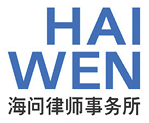Foreign private fund managers, including multinationals, hope to raise funds from inside China to facilitate synergy between domestic and international operations and offer “one-stop” customer services.
This article addresses whether Chinese law permits foreign entities to raise private funds within the country. It also introduces the regulatory framework, practical considerations and cross-border investment opportunities under certain pilot policies.
The author believes that as China’s financial asset management sector rapidly opens to the outside world and the internationalisation of the renminbi progresses, we can expect more cross-border investment products. Channels will be made available, paving the way for co-ordinated growth between cross-border asset management businesses, bringing economic advancement.
Regulatory framework

Partner
Haiwen & Partners
Tel: +86 10 8560 6939
E-mail: zhangkainan@haiwen-law.com
There are no specific provisions in Chinese law for foreign private funds to issue, sell, promote and fundraise in China.
The Securities Law regulates the issuance and trading of various financial instruments including stocks, corporate bonds, depositary receipts and other securities that the State Council recognises under law.
While there is no explicit provision, the author believes foreign private funds fall under the category of “other securities recognised by the State Council”. According to the Regulations on the Supervision and Administration of Private Investment Funds, overseas institutions are prohibited from directly raising funds from investors in China to establish private funds unless specified by Chinese regulations. Therefore, overseas institutions are required to obtain approval from the State Council before raising funds within China.
Only entities registered with the regulatory authorities and the Asset Management Association of China are permitted to raise funds domestically. Regarding the fundraising activities of foreign entities within China, Chinese law has not yet provided explicit guidelines.
Cross-border fundraising
Overseas entities usually establish internal guidelines for the cross-border activities of their foreign personnel, clarifying activities permitted or prohibited under Chinese law.
Under the foreign exchange regulatory regime, domestic entities in China are required to follow specific regulatory procedures when making overseas direct investment such as investing in overseas stocks, unlisted company equities, private funds and wealth management products. These investments must be carried out through prescribed entities and channels, and under regulatory procedures such as: (RMB) Qualified Domestic Institutional Investors ((R)QDII); Qualified Domestic Limited Partnership (QDLP)/Qualified Domestic Investment Enterprise (QDIE); Shanghai-Hong Kong Stock Connect; China Bond Connect; Mutual Recognition of Funds (MRF) between the mainland and Hong Kong; and Cross-border Wealth Management Connect.
A select few domestic institutions (such as QDII/RQDII, QDLP/QDIE) are permitted to invest in overseas private funds on fulfilling regulatory procedures. Additionally, China’s sovereign wealth fund and the National Social Security Fund of China (together with the above-mentioned entities, collectively referred to as “qualified investors”) are also eligible to invest in overseas private funds due to their unique status. Overseas institutions are permitted to raise funds privately from qualified investors under certain circumstances, based on the author’s understanding.
Shenzhen-HK private fund connect
In July 2023, the Shenzhen Municipal People’s Government released the Printing and Distributing and Implementing Plan for the Opinion on Financial Support for the Comprehensive Deepening of Reform and Opening Up of the Qianhai Shenzhen-Hong Kong Modern Service Industry Co-operation Zone. It is an effort to explore the Shenzhen-Hong Kong Private Fund Connect mechanism, enhance the efficiency of the Qianhai Co-operation Zone’s pilot scheme involving QDIE, QFLP and PFM WFOE, and reduce the access thresholds for Hong Kong investors.
It will gradually expand the investment scope and streamline the application process, enabling entities with QFLP qualifications to directly apply for QDIE qualifications. It will also allow entities to apply for both QFLP and QDIE qualifications, or to commence QDIE and PFM WFOE operations.
This policy aims to foster deeper cross-border investment co-operation between Shenzhen and Hong Kong, while enhancing the interconnection of private fund industries in both regions.
EF account
In August 2023, the Guangzhou branch and Haikou sub-branch of the People’s Bank of China both released a draft for public comments on the multifunctional free trade (electronic fence) account business in the Greater Bay Area (GBA) and Hainan Free Trade Port. The term “electronic fence” (EF) refers to a versatile free-trade account that entails financial institutions offering separate accounting services for local and foreign currency accounts with consistent rules.
The proposed regulations allow for unrestricted fund transfers between EF accounts and overseas accounts, as well as between non-resident accounts (NRAs) and EF accounts. However, transfers between EF accounts and ordinary accounts held by domestic residents are considered cross-border transactions, following the “negative list + quota management” principle.
The author expects that EF accounts will offer a broader range of channels for overseas entities to raise funds as the pilot scheme progresses further.
Wealth management connect
Following the launch of the pilot Cross-border Wealth Management Connect Scheme in the GBA, more than 60,000 individual investors participated between September 2021 and 2023.
On 28 September, seven departments, including the People’s Bank of China and financial regulators in Hong Kong and Macau, enhanced the scheme by improving investor eligibility criteria, expanding the scope of products and raising the investment quota. It is believed that the introduction of the implementation rules and business guidelines will significantly enhance the interconnection of the financial market in the GBA and bolster the growth of the cross-border asset management business.

5 Dong San Huan Central Road
Chaoyang District, Beijing 100020, China
Tel: +86 10 8560 6888
Fax: +86 10 8560 6999
Email: haiwenbj@haiwen-law.com
www.haiwen-law.com





















